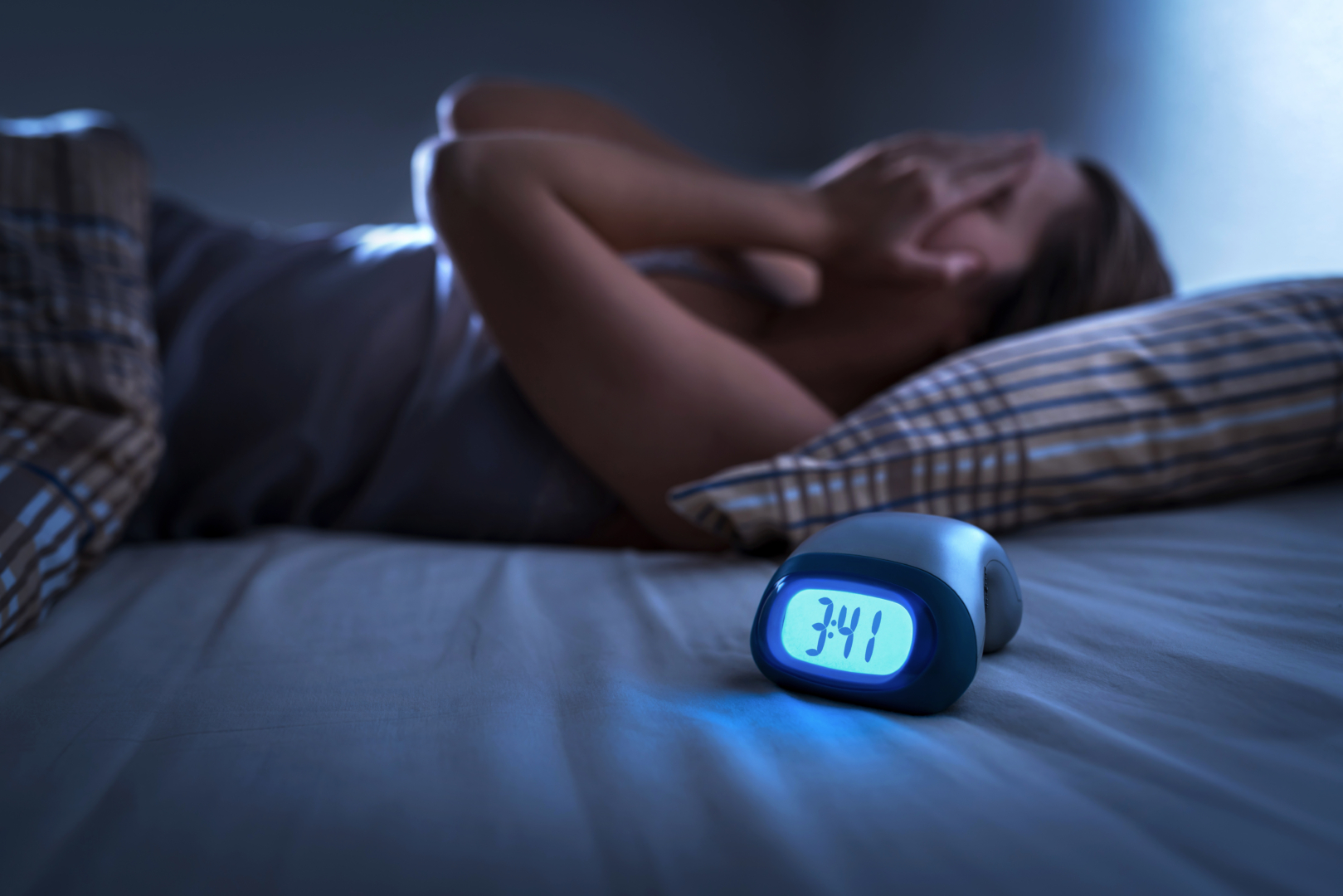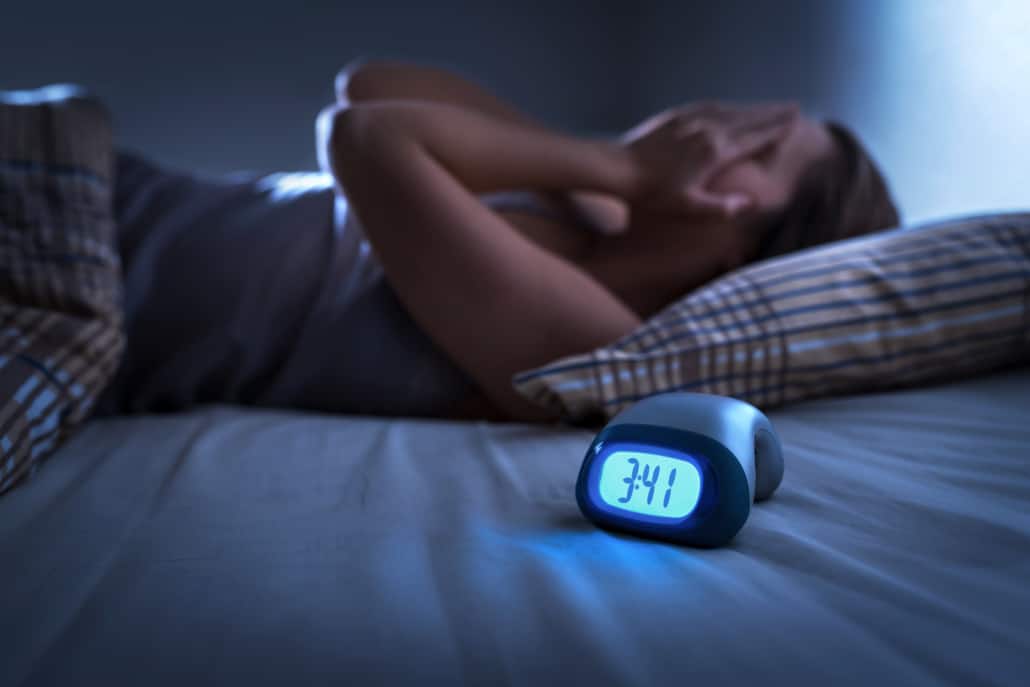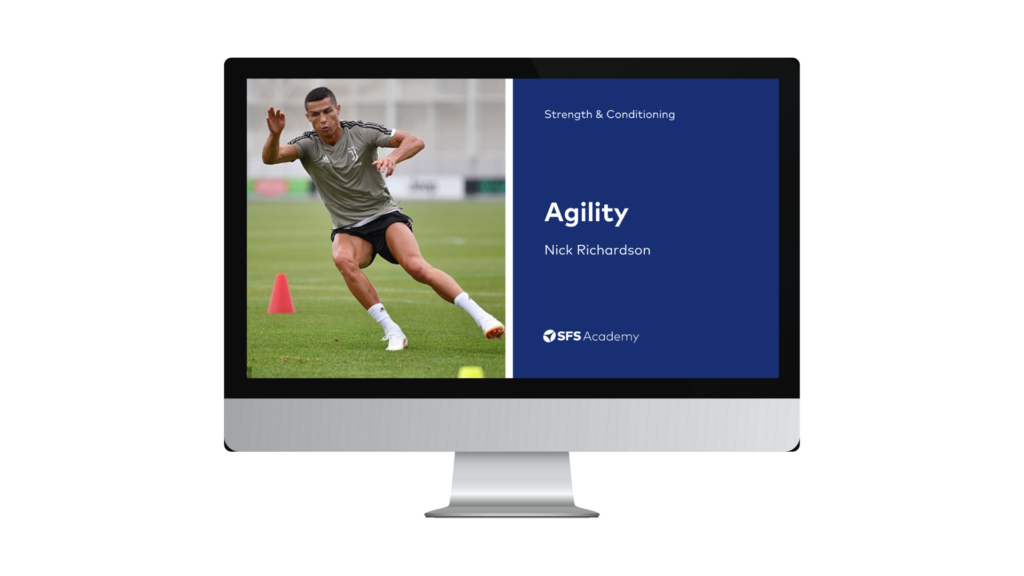Sleep and sport: Deprivation, training and performance
Due to the busy lifestyle that many athletes live, sleep and sport don’t always go together, but it is crucial for recovery and performance. Here’s how sleep can be a difference-maker for your performance.
Sleep – why is it so important?
“It doesn’t matter how tired I get, because if I can’t get amped up for game day, then I shouldn’t be playing anyways.”
The main premise of sport is to achieve a high level of performance to give the best odds of winning. Within that pursuit of high performance, training and competition requires fatigue accumulation and breaking down the body to adapt to becoming bigger, faster and stronger. Sleep is central to this process, as it’s fundamental to both short and long-term recovery (19).
However, due to the busy lifestyle that many athletes live, sleep and sport doesn’t always go together, resulting in insufficient sleep duration and quality. Inconsistent schedules including practice, lifting, travel and games, late nights and early mornings, and also psychological and physiological stress, can all add up to impact an athlete’s sleep.
Despite some of these inevitable factors, sleep is a must for recovery and performance. Sleep is when the body not only repairs itself from hard training and competition but also grows to be better prepared for the next opportunity to perform. In a study done over 21 months with middle school and high school athletes, 65 % were chronically not getting enough sleep (17). Additionally, within elite sports, insomnia symptoms are highly prevalent (8). As one of the common sleep disorders, insomnia is defined as difficulty falling and staying asleep, which leads to a lack of restorative sleep and impaired daytime functioning (1). Lastly, it is also known that collegiate athletes fail to get restorative sleep(14).
Sleep difficulties go beyond just performance, as acute and chronic sleep disturbances could negatively affect immune function and emotional well-being (19). The insufficient sleep quantity and quality of athletes justifies encouraging and opening the discussion about sleep-optimising interventions (20). Off the court or pitch, sleep could be a difference-maker in reaching that next level of performance.
What sleep does
Between sleep and performance, recovery is foundational to the fitness-fatigue model of training. Fatigue is accumulated during training, and sleep aids in recovery to turn it into fitness to increase performance. Sleep is one of the fundamental opportunities an athlete has to recover from training and improve performance. Sleep is not simply just the absence of being awake, but a state of special brain functioning and activity with mechanisms that affect the entire body (11). The circadian rhythm is an internal clock of the body that controls all biological rhythms of the body (19), including sleep.
Exercise timing: Does it really matter if you work out in the morning, afternoon or night?
Of the four stages of sleep, slow wave and rapid eye movement (REM) are the most important. Slow-wave sleep is when growth hormone is produced and the body recovers, while REM sleep is primarily for the brain and memory consolidation (19). Within one night of sleep, the body goes back and forth between these stages, both recovering from the prior day’s efforts and preparing for the upcoming day (5). However, when sleep deprivation occurs, slow-wave sleep will be prioritised, with REM sleep returning after slow-wave sleep has been recuperated (19). For example, sleep-dependent motor sequence learning depends on that night’s sleep (19), meaning sleep deprivation will cause the cognitive benefits of sleep to suffer first.
‘Good sleep’ can be evaluated by these categories: subjective satisfaction, adequate duration, alertness during waking hours, high efficiency, and appropriate timing (3). Understanding why sleep is important and how to evaluate if an athlete is achieving good sleep or not leads to identifying potential sleep deprivation. Although there is a lack of consistency with sleep recommendations, greater than eight hours has been used as a general guideline for sufficient sleep (17). Sleep can benefit an athlete’s health and well-being, mood, and cognitive performance on top of physical performance (14, 15).
Sleep deprivation – it’s more harmful than you think
Although the objectiveness of how much sleep and the effectiveness of sleep is yet to be officially determined, in this context of athletes and sport, sleep deprivation can be described as the lack of sleep quantity and quality required to recover from sport and perform at a high level.
Now that we understand how sleep aids in the recovery process, it’s easy to see how sleep deprivation can be detrimental to physiological growth and repair (19). However, it is important to note there is a difference between acute (one night) and chronic (5+ days) sleep deprivation. Acute sleep deprivation yields consequences related to mood, cognition, performance, emotions, and behaviour, while chronic sleep deprivation can lead to long-term health problems such as cardiovascular disease, weight-related issues, cancer, and risk of mortality (7).
Sleep problems can include long sleep latency (taking too long to fall asleep), waking up during sleep, short sleep duration, and lack of sleep quality (13). These issues can arise from the increased time demands of athletes pushing other responsibilities to later in the day, which reduces sleep duration. For example, morning training sessions limit the opportunity for sleep and lead to increased pre-training fatigue levels (18). Additionally, the stress (both physical and psychological) and pressure to achieve high performance may cause sleep problems. This doesn’t mean athletes should not train in the morning, neglect outside responsibilities, or have lower expectations, it just means these factors need to be considered when planning out training and daily life.
These lifestyle factors can turn into a vicious cycle of not receiving enough sleep due to early practice, a midday nap affecting later sleep latency, bedtime being pushed back due to increased time demands of practice/games, the inability to stay asleep because of the pressure to perform, all combining to alter the athlete’s circadian rhythm and biological systems required for sleep. When this is accumulated over the course of a month, a semester, a school year, and so on, athletes can experience decreased performance and an increased risk of injury.
Can sleep deprivation lead to higher injury risks?
One of the biggest issues surrounding sleep deprivation is injury risk. Although injury risk is hard to predict and we need to keep in mind correlation is not causation, some studies have started to describe this relationship. It has been shown that both acute stress and coping ability contribute to injury risk (16). A risk factor for adolescents includes the amount of sleep they get per night (17), and adolescents with chronic lack of sleep are more likely to suffer sports injuries than those who sleep well; however, the acute effects of poor sleep are not yet determined (7). Lastly, logically, it can be deduced that when sleep-deprived athletes are in a poorer physical condition and possess less neuromuscular coordination when performing the skills of a sport (7), they could be more prone to injury.
Not only can early identification of fatigue-related performance decrements aid injury reduction efforts (10), but these can also be addressed firsthand by sleep-related issue identification. Valid and reliable questionnaires exist that identify athletes who could benefit from sleep-related interventions (2).
How to sleep better … and what about napping?
Sleep hygiene is a term used to describe the behavioural and environmental factors that promote healthy sleep (13). This is often neglected due to all the other responsibilities of athletes including academic, athletic, and social demands (14). However, it is important to know why sleep is important and the factors that affect it, so good sleep hygiene and sleep habits can be made (16, 19). Similar to how performance can be trained, sleep training is conditioning the body for better sleep.
Action can be taken to improve both an athlete’s sleep duration and sleep quality. There is a three-step approach to improving sleep. Firstly, understanding the value of improved sleep and why it’s important, then gaining information on the best sleep practices, and finally, removing any sleep barriers that may be present (14).
Here are some of the best rules of thumb to improve sleep (13):
- The closer to bedtime caffeine is consumed, the more likely it is to negatively affect sleep.
- The more pre-sleep arousal an athlete has, the more likely it is to negatively affect sleep.
- The more irregular the athlete’s sleep schedule is, the more likely it is to negatively affect sleep.
Turning these into action can include: not consuming caffeine after noon, adopting stress-management techniques to reduce stress and arousal before bedtime, and keeping both bedtime and waking time as consistent as possible. For example, an athlete can adopt a bedtime routine, read a book to relax, write down their schedule for the upcoming day, etc. to ease the mind before trying to fall asleep.
It is also worth noting more time in bed does not necessarily equate to higher sleep quality (4). This means that more goes into achieving effective sleep than simply spending more time in bed; much more goes into sleep hygiene to achieve the right environment both physically and mentally to get high-quality sleep. Factors such as light, body temperature, and noise can affect an athlete’s sleep (19). Reducing the amount of light in the bedroom, lowering the core body temperature and temperature of the room, and eliminating all noise can promote good sleep hygiene. The optimal room temperature has been recommended to be 66-69˚F (19-21˚C) (9). However, it will depend on what temperature the athlete prefers.
Although there is conflicting research on napping, as it could be up to the athlete’s preference, it is important to consider the effects of sleep inertia when napping. Sleep inertia is the continued feelings of sleepiness and grogginess after waking. If an athlete decides to nap, they should give themselves 30 minutes between waking up and their next obligation to mitigate that side effect (15). Additionally, to reduce the potential negative effects of napping, the athlete should also make sure the nap does not affect their habitual sleep schedule at night (15).
Relative to the training and competition calendar, an athlete should be conscious of when they are at the highest risk of injury to prioritise sleep and recovery. Higher injury rates are experienced during pre-season due to the increased workload and longer or multiple practices (12). With this knowledge, athletes can be intelligent about their training load and extra conscious about the amount of sleep they are getting during that period of time. Additionally, in-season training and games come with the increased physical stress of travel and the psychological stress of competition.
Final thoughts before you turn in for the night…
Sleep is just as important as training and competition because it’s the body’s opportunity to recover and prepare itself to achieve high-performance next time. Sleep deprivation can reduce the gains and progress made from training, reduce performance, and increase the risk of injury. However, the main issue isn’t necessarily acute sleep deprivation but chronic sleep deprivation (7). The factors associated with being an athlete such as increased psychological stress, irregular schedules, and travel often come at the expense of sleep.
Jet lag and travel fatigue: Tips and tricks for athletes
A study performed on a group of athletes which included an intervention of sleep hygiene education showed the athletes returned to their pre-sleep hygiene education habits within a month of the education ending (4). This shows the habitual nature of sleep, and achieving better sleep goes beyond simply understanding the value of it. Sub-optimal sleep is often not an acute issue but a chronic lifestyle issue. All the factors such as daily physical stress, travel, caffeine consumption, pre-bed routines (or lack thereof), pressure to perform, and irregular sleep schedules over years of being an athlete often accumulate into norms and habits that yield insufficient sleep. The factors listed above are neither inherently good nor bad, but it’ll consequently take the same accumulation in the opposite direction to fix the problem. The subconscious lifestyle choices that appear normal to athletes will take just as much intentionality to reverse them.
Athletes can capitalise on this knowledge of the importance of sleep and common sleep deprivation causes by acknowledging the issue, determining what actions can be taken to mitigate those issues and assimilate those changes into their daily lives to become normal. Sleeping better is just about as opposite as it can be from sport: it’s mundane and slow. Making better choices for sleep hygiene is actively taking the crazy out of daily life wherever possible when much is not in an athlete’s control. But maybe that’s the encouraging part, that there are opportunities to sleep better. And sometimes that’s all athletes can do: give themselves the best opportunity to get an awesome night of sleep. Just as athletes can influence their performance on the court or field, they can influence their performance while sleeping.
- American Academy of Sleep Medicine. International Classification of Sleep Disorders. 3rd ed. Darien: American Academy of Sleep Medicine; 2014.
- Bender AM, Lawson D, Werthner P, Samuels CH. (2018). The clinical validation of the Athlete Sleep Screening Questionnaire: An instrument to identify athletes that need further sleep assessment. Sports Medicine, 4(1), 23.
- Buysse DJ. (2014). Sleep health: Can we define it? Does it matter?. Sleep, 37(1), 9–17.
- Caia J, Scott TJ, Halson SL, Kelly VJ. (2018). The influence of sleep hygiene education on sleep in professional rugby league athletes. Sleep Health, 4(4), 364-368.
- Davenne D. (2009). Sleep of athletes – problems and possible solutions. Biological Rhythm Research, 40, 45-52.
- Dobrosielski DA, Nichols D, Ford J, Watts A, Wilder JN, Douglass-Burton T. (2016). Estimating the prevalence of sleep-disordered breathing among collegiate football players. Respiratory Care, 61(9), 1144-1150.
- Gao B, Dwivedi S, Milewski MD, Cruz AI. (2019). Lack of sleep and sports Injuries in adolescents. Journal of Pediatric Orthopaedics, 39(5), 324–e333.
- Gupta L, Morgan K, Gilchrist S. (2017). Does elite sport degrade sleep quality? A systematic review. Sports Medicine, 47, 1317–1333.
- Harding EC, Franks, NP, Wisden, W. (2019). The temperature dependence of sleep. Frontiers in Neuroscience, 13, 336.
- Heaton KJ, Maule AL, Maruta J, Kryskow EM, Ghajar J. (2014). Attention and visual tracking degradation during acute sleep deprivation in a military sample. Aviation Space and Environmental Medicine, 85, 497-503.
- Hobson JA. (1995). Sleep. New York, NY: Scientific American Library.
- Hootman JM, Dick R, Agel J. (2007). Epidemiology of collegiate injuries for 15 sports: Summary and recommendations for injury prevention initiatives. Journal of Athletic Training, 42, 311–319.
- Irish LA, Kline CE, Gunn HE, Buysse DJ, Hall MH. (2015). The role of sleep hygiene in promoting public health: A review of empirical evidence. Sleep Medicine Review, 22, 23-36.
- Kroshus E, Wagner J, Wyrick D, Athey A, Bell L, Benjamin HJ, et al. (2019). Wake up call for collegiate athlete sleep: Narrative review and consensus recommendations from the NCAA Interassociation Task Force on sleep and wellness. British Journal of Sports Medicine, 53, 731–736.
- Lastella M, Halson SL, Vitale JA, Memon AR, Vincent GE. (2021). To nap or not to nap? A systematic review evaluating napping behavior in athletes and the impact on various measures of athletic performance. Nature and Science of Sleep, 13, 841-862.
- Laux P, Krumm B, Diers M, Flor H. (2015). Recovery–stress balance and injury risk in professional football players: A prospective study. Journal of Sports Sciences, 33, 1-9.
- Milewski MD, Skaggs DL, Bishop GA, Pace JL, Ibrahim DA, Wren T, Barzdukas A. (2014). Chronic lack of sleep is associated with increased sports injuries in adolescent athletes. Journal of Pediatric Orthopaedics, 34(2), 129-133.
- Sargent C, Lastella M, Halson SL, Roach GD. (2014) The impact of training schedules on the sleep and fatigue of elite athletes. Chronobiology International, 31(10), 1160-1168.
- Venter R. (2012). Role of sleep in performance and recovery of athletes: A review article. South African Journal for Research in Sport, Physical Education and Recreation, 34, 167-184.
- Vlahoyiannis A, Aphamis G, Bogdanis GC, Sakkas GK, Andreou E, Giannaki CD. (2021). Deconstructing athletes’ sleep: A systematic review of the influence of age, sex, athletic expertise, sport type, and season on sleep characteristics. Journal of Sport and Health Science, 10(4), 387-402.




